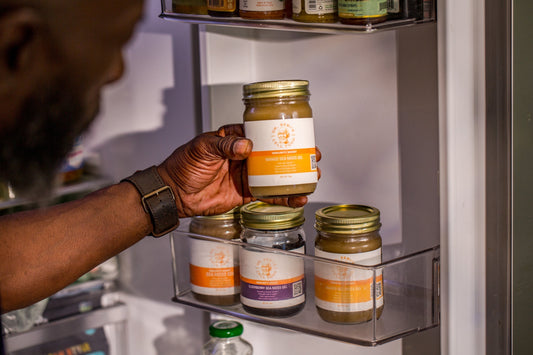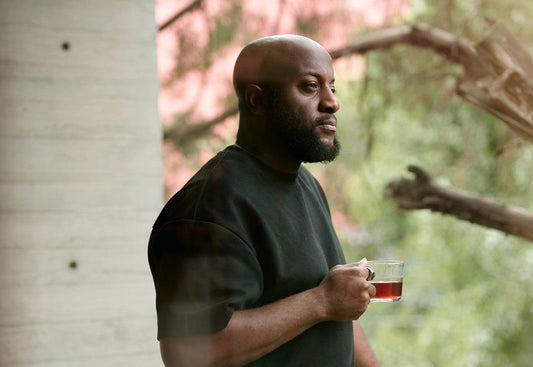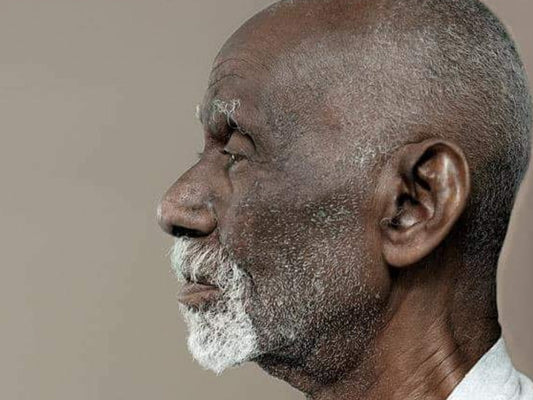When most people hear about anxiety, they immediately think about adults. However, grown-ups are not the only ones dealing with anxious feelings. In fact, children suffer from anxiety as well.
Approximately 9.4% of children between the ages of 3 and 17 had an anxiety diagnosis between 2016 and 2019. Unfortunately, those rates may be climbing, making anxiety one of the most critical mental health challenges of our time.
Acknowledging anxiety in children is so vital because this mental health condition can affect every part of a person’s life. Not only does it interfere with their emotional well-being and social skills, but it also affects their physical health.
Mental health has a direct relationship with our physical health, so a child that’s often anxious may feel physically sicker, which leads to missed school days and more. This can make a child feel socially secluded, stigmatized, and incapable of completing everyday activities. Therefore, we must address childhood anxiety, what causes it, and how to help.
“Everybody resonates differently. And everybody comes with a good message afforded in a different way.” — Dr. Sebi
When Does Anxiety in Children Become a Problem?
It’s important to clarify that everyone experiences anxious moments sometimes, but having an anxiety disorder is different. For instance, we could say that many children feel uneasy about school when an exam is coming up.
However, for some children, this worry could be so significant that it prevents them from getting out of bed to go to school that day. Severe anxiety like this can impair a child's mental and emotional well-being. It also injures their self-esteem and confidence.
As a result, they begin to question themselves even more, exacerbating their previous worries. Over time, a child may become withdrawn and go to great lengths just to avoid things and situations that make them anxious.
Our children are our most precious gifts, ones that we must help heal and nurture — especially in their most difficult times. Children suffering from anxiety often do not know what the root cause is, which only adds to their frustration and confusion. Dr. Sebi’s greatest gift was his ability to get to the root of an issue and address it naturally and with love.
“Keep going every day. Remember that progress is progress, no matter how small.” — Dr. Sebi
Signs of Anxiety in Children
If you’re a parent, it’s not always easy to tell if anxiety is becoming a problem for your child, and you might not be sure where to start. Fortunately, there are some signs to look for that could help you identify if anxiety is what’s currently going on.
But before we jump into those signs, it’s important to mention that excessively protecting your child from their fears could do more harm than good. Naturally, as a parent, you want to shield your child from feeling this way, especially if they are chronically anxious, but it could be more detrimental to them in the long run. You do not want to hamper their ability to build resiliency.
Learn to find balance in protecting your children from their fears and helping them to face and overcome them. Here are some signs of anxiety in children you’ll want to look for:
- Difficulty focusing
- Having challenges sleeping or waking up from bad dreams
- Bedwetting
- Becoming extremely irritable or angry
- Excessive clinginess
- Feeling tense or using the bathroom often
- Having problems eating
- Complaining of stomach aches or not feeling well
- Avoidance of everyday activities
- Crying often
- Lack of confidence
- Negative thoughts or constantly worrying
Some of these signs are more present in younger children than in older children, and vice versa. With younger children, though, it’s a little more challenging to assess because they may not be able to express what they’re feeling adequately.
Instead, they may cling to you or throw temper tantrums. While all young children do this sometimes, anxiety could be the culprit if your child does it more than expected.
For instance, a young child may experience intense anxiety when their parent leaves the room, but teenagers might be more concerned about school performance or friendships.
What Causes Anxiety in Children?
Several things can cause anxiety in children, but it also depends on what stage of life they’re in. As mentioned in the previous section, children tend to worry about different things at different ages.
For example, 3-year-olds are more likely to experience separation anxiety (especially if they have overprotective parents) because they don’t want to be away from their guardians. Preschool-aged children are more likely to develop specific fears and phobias like a fear of heights, blood, insects, storms, or being in the dark.
Older children may be more likely to experience social anxiety due to a fear of being constantly judged and criticized.
Below, we’ll dive deeper into what causes anxiety in children. While some anxiety is more age-related, it’s also important to note that some kids are just much more likely to worry than others. In addition, some events or changes may occur in a child's life that causes them to develop anxiety, such as hearing family arguments or moving to a new state.
Genetics
To date, no one is 100% sure where anxiety comes from, but if a child has biological relatives with anxiety disorders, they’re more likely to get it. Enough research has been done to suggest that anxiety is somewhat hereditary.
A 2016 study revealed that generalized anxiety disorder, panic disorder, and social anxiety were all linked to specific genes. In 2017, a review was completed and inferred that generalized anxiety disorder could be inherited. In fact, they concluded that anxiety is about 30% inherited.
Although anxiety may be genetic, it doesn’t mean your child will automatically develop it if you or someone in your family also struggles with it. Genetic factors could make them more prone to anxiety, but environmental factors could ultimately bring it out.
Brain structure and how the chemical reactions function in each person are also believed to play a role in whether or not they’ll develop anxiety. Genes direct how brain chemicals perform, but anxiety may develop if certain brain chemicals are in low supply or not functioning correctly.
Dr. Sebi had a fascination with genetics and how certain genomes require different levels of chemical affinity — he called it gene-food consistency, and it has helped thousands of people.
Life Situations
While genetics and brain chemistry play a significant role in anxiety, so do life situations. A study found that stressful life events, like health issues and family discord, were longitudinally associated with increased anxiety sensitivities.
If your child has experienced serious illness, the death of a loved one, violence, or abuse, they are much more likely to experience anxiousness than children who have not. Significant changes, like certain life events, are hard for adults. Therefore, it is challenging for children who don’t yet have the skills to cope with their feelings.
Children are extremely observant and empathetic beings. They feel things deeply, and although they may not understand it, those feelings embed themselves and affect their cells.
Learned Behaviors
When people say that anxiety runs in families, they immediately jump to genetics, but sometimes it’s learned behavior. If a child grows up in an environment where others are constantly fearful or anxious, they’ll unintentionally teach that child to act like that too. Sometimes adults unknowingly behave in unhealthy ways. So if your child is anxious, you may need to look at your and your family’s behavior.
“A flower can’t grow without sunshine, and man can’t live without love.” — Dr. Sebi
5 Tips for Parenting Children Dealing With Anxiety
Now that you know what anxiety in children looks like and how it’s caused, it’s time to share what you can do about it. No one wants their children to live in fear or constantly express worrisome thoughts.
Therefore, it’s essential to implement proper coping strategies and problem-solving skills so your children can manage their anxiousness. Here are five tips that’ll help with parenting children dealing with anxiety.
#1 Aim to Manage but Not Eliminate Anxiety
The first thing you probably want to do when you see your child feeling antsy is get rid of the stressor that triggered it. But this isn’t necessarily the best approach. You can’t fix anxiety by removing every single stressor they have because it could ultimately become incredibly detrimental to the child.
For example, if your child finds that school makes them anxious, the response shouldn’t be to take them out of school. Instead, when your child is anxious, you should teach them how to tolerate their anxiety and function as well as they possibly can.
Over time, their anxious feelings will decrease, and they’ll know how to cope better. Life comes with many obstacles, and as your child grows, those obstacles will grow as well. Teaching them how to flow with life will help teach them invaluable lessons they will carry with them forever.
#2 Provide Positive and Realistic Expectations
Sometimes, parents create unrealistic expectations for children by telling them everything will go well. However, this is something we cannot promise because negative things can and do happen.
For example, if they’re going to a birthday party, you can’t promise your child that no one will be mean. Or, if an important test is coming up, you shouldn’t tell them there’s no possible way they’d miss any questions. You can’t guarantee the results, but you can express confidence that no matter what happens, they’ll be okay and be able to get through it.
Also, reinforce to your child that their anxiety will lessen every time they face a fear. It’ll inevitably prepare them to take on other challenges that may occur later on in their life. Providing realistic expectations gives your child the confidence to better handle whatever comes their way.
#3 Do Respect Their Feelings but Don’t Reinforce Them
If your child is feeling anxious, you want to validate them by acknowledging that what they feel does exist. So it’s important to listen to them, help them understand their feelings, and express empathy. Yet, you don’t want to demonstrate that you agree with it.
So if your child says, “I don’t want to do show-and-tell at school because I’m afraid,” you should encourage them to feel comfortable facing this fear. Then, you can acknowledge that this fear exists and that it’s okay to feel this way while also letting them know they’ll get through it.
#4 Help Your Child Think Their Feelings Through
It’s not as easy for kids to understand their feelings and why they feel them. Therefore, adults must help them acknowledge their feelings and think those thoughts through.
Let’s use an example. What if your child is about to go to a new school and says others will bully them? One way to approach a situation like that is by evaluating what would happen if that actually occurred. Then, discuss what they should do if they are bullied, how they could handle their emotions if it does happen, and ways to move forward.
Creating a plan together for possible scenarios will help the child go into these situations with a strategy. It can reduce the uncertainty they feel healthily and effectively. Over time, they’ll also learn to create strategies by themselves, assisting them throughout life.
#5 Try to Model Healthy Ways of Handling Anxiety
One of the best ways to show children how to handle anxiety is by allowing them to see you handle it in a healthy way. Kids mimic their parents or the adults around them. While they may not say they’re watching you, they certainly see what you do and believe that to be the correct standard.
For instance, if you’re dealing with a stressful situation and handle it by indulging in unhealthy behaviors and telling your friends, “you can’t handle it,” your kids will think it’s okay for them to do that too.
Conversely, some adults keep all of their emotions bottled up and act like stressful situations don’t bother them. This isn’t a good example either because you’d be teaching your kids not to acknowledge how they feel, which will only worsen anxiety over time.
Instead, let them see and hear you handle anxious moments as calmly as possible. Allow them to see how you positively tolerate difficult times and feel good about getting through them.
Unhealthy dietary habits can exacerbate stress and anxiety. It can be far too easy to reach for the pint of ice cream when you’re feeling stressed or anxious, but that sends a negative message to your child. Eating a healthy diet, especially in times of stress, can significantly reduce those feelings while also building lifelong, healthy habits for children.
Dr. Sebi’s Favorite Children’s Book: The Health Guardians
You’ve learned how to identify anxiety in children and the causes of anxiety in children, and now you have strategies for parenting a child dealing with anxiety. We want to offer another resource to help.
Dr. Sebi’s favorite children’s book is called “The Health Guardians,” and this book helps break down the importance of good nutrition to young children. A part of addressing anxiety is assessing the foods you eat and how to stay as healthy as possible, even when invaders or negative things are around you.
Therefore, this book will introduce your children to characters like the Mucus Gang, who seek to cause havoc by making people sick and causing disease. Then comes the Health Guardians, who include Fruitarian Fighter, Grain Crusader, Vegetarian Warrior, and Seafood Gladiator, to defeat the Mucus Gang.
This fantastic nutritional guide is excellent for people of all ages, so you and your child can benefit from the information it includes. It’s the perfect story to have in your toolbox to educate young minds about the importance of proper, Dr. Sebi-approved nutrition. Explore healthy ways of preventing and handling anxiety through appropriate nutrition with Dr. Sebi’s favorite children’s book, The Health Guardians.

















































